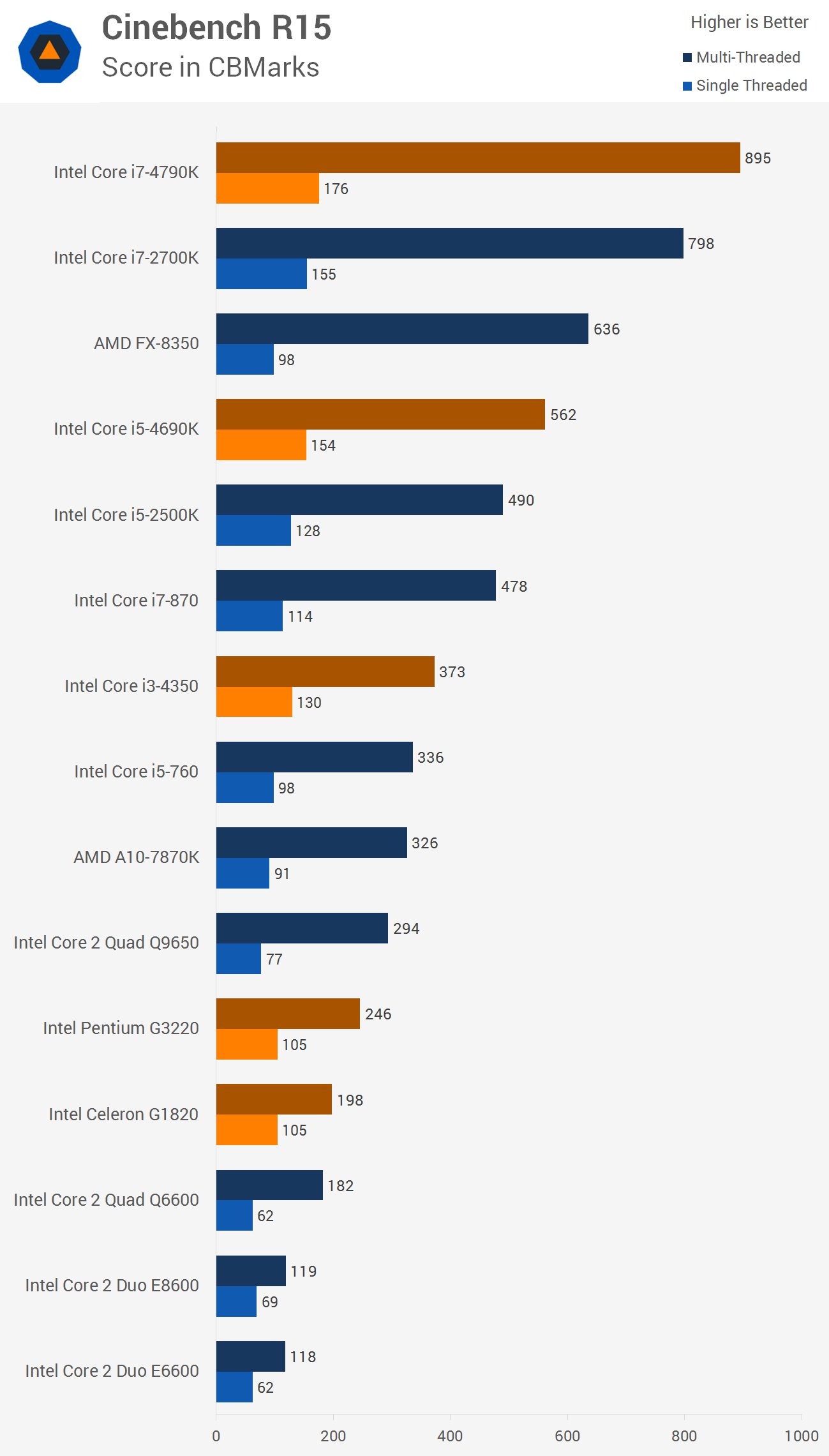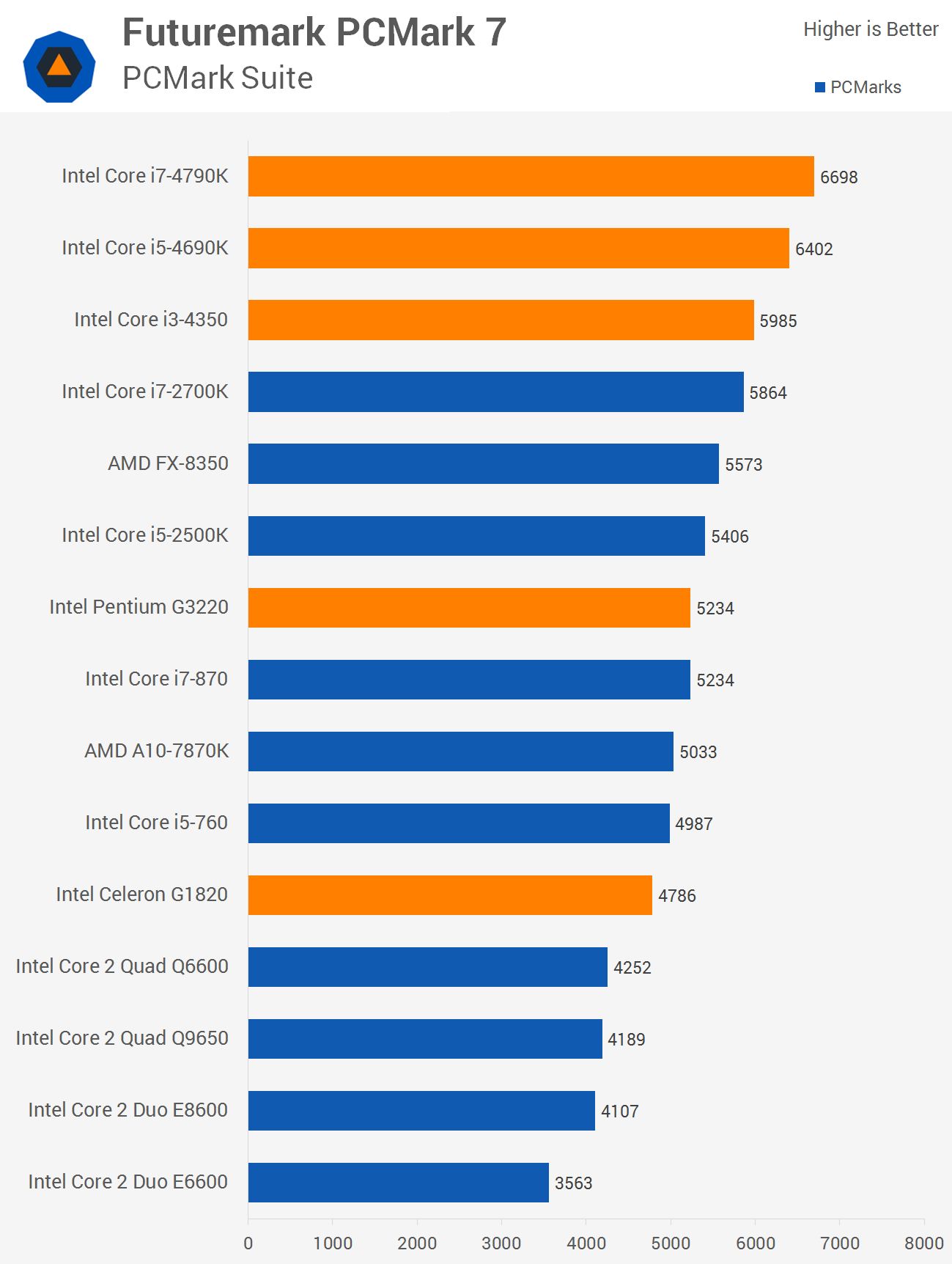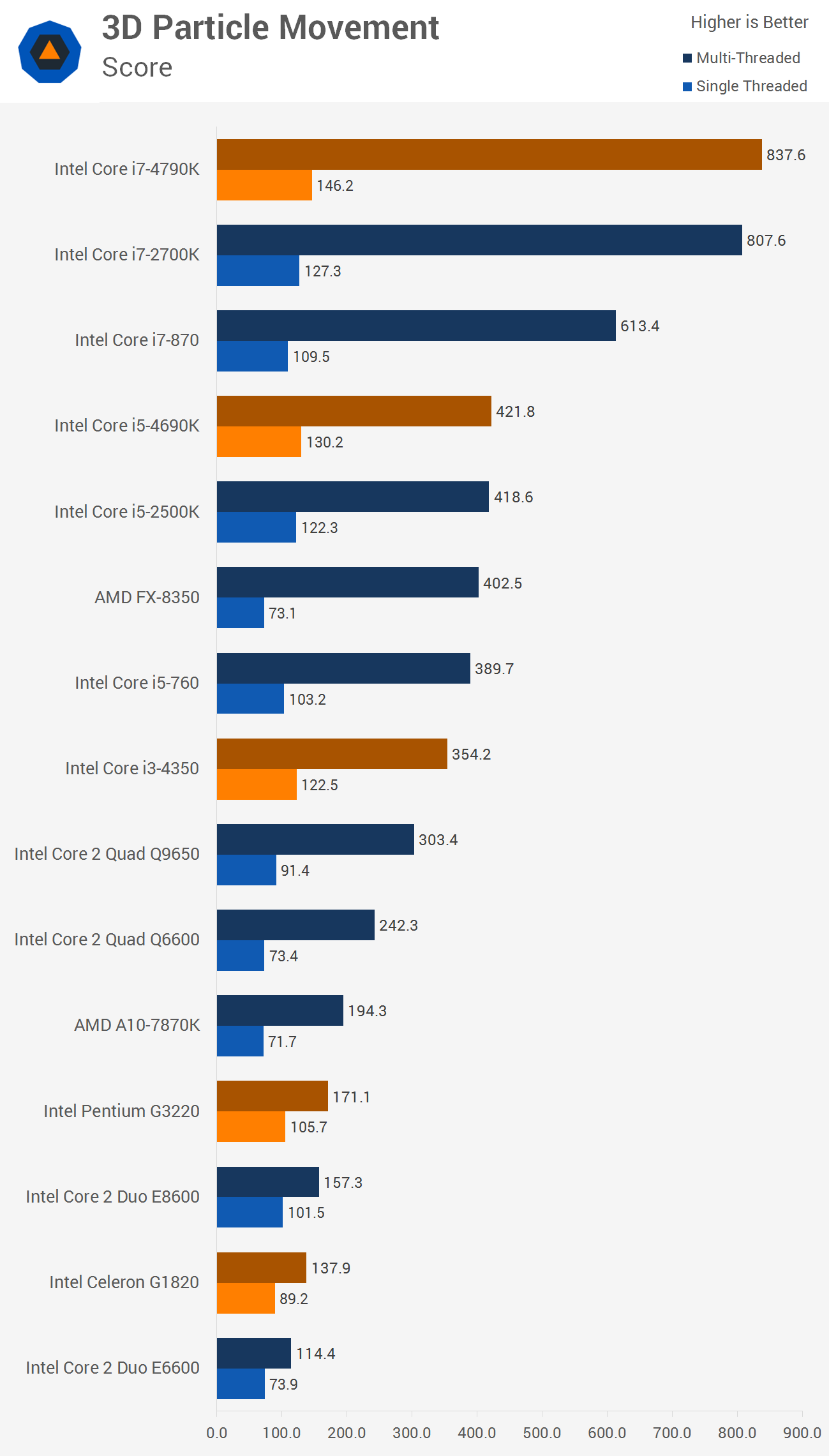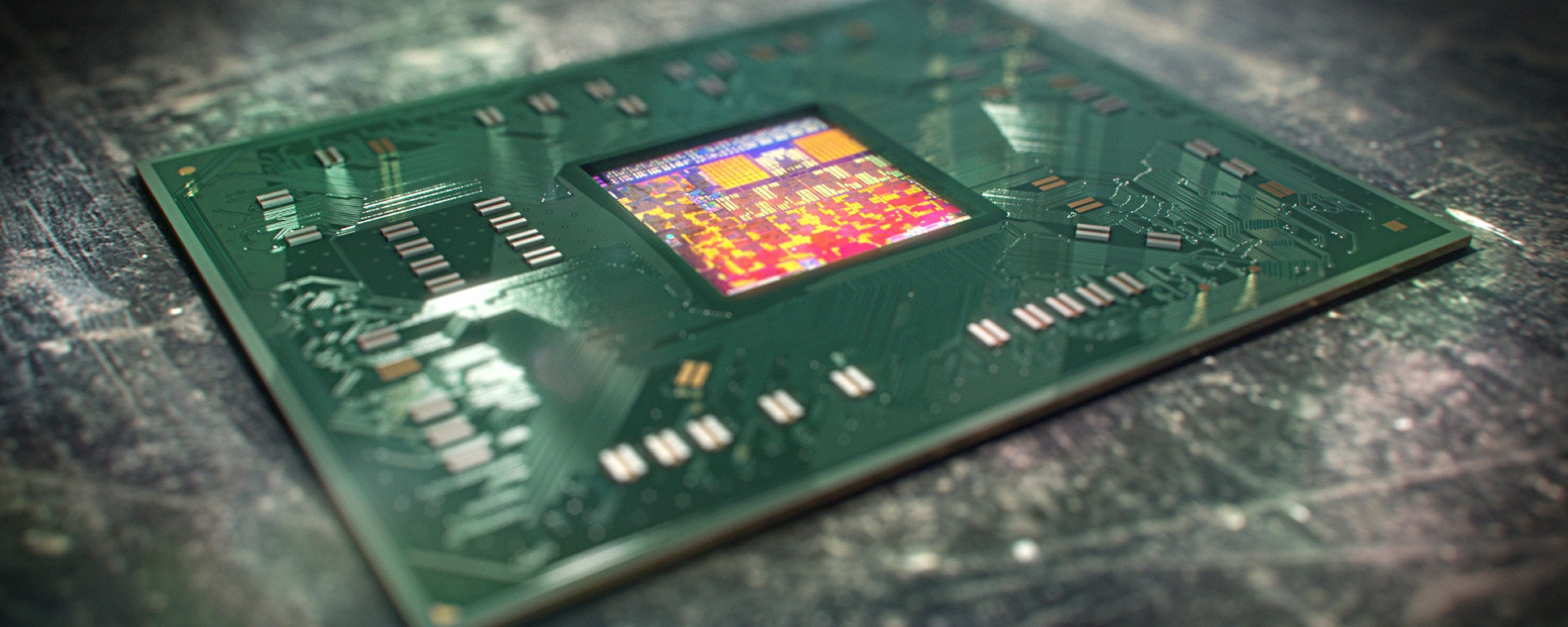Synthetic Benchmarks

Cinebench R15 is a synthetic benchmark so it isn't going to tell us too much about usability. Comparing the multi-threaded performance of the Core 2 Quad Q9650 to the Core i7-4790K we see that the much newer Haswell processor is 3x faster. That said, it's interesting to note that the 4790K is just 2x faster when comparing single thread performance (note that the Core 2 range doesn't support Hyper-Threading).
It's interesting to note that the Core 2 Quad Q600 was slightly slower than the Celeron G1820 when comparing multi-threaded performance and considerably slower when comparing single-thread performance.
The Core i5 760 was also slower than the Core i3-4350 in both the single and multi-threaded tests, while the Core i7-870 was slower than the Core i5-4690K, though it matched the Core i5-2500K.

The PCMark 7 scores for the older processors might seem higher than expected, but keep in mind this test also measures the performance of the GeForce GTX 980 and Crucial MX200 SSD, both of which inflate the results. There isn't a huge discrepancy in the results like you might expect, especially when comparing the Core 2 chips to the fourth-generation Core processors. That said, the Celeron G1820 was faster than the Core 2 Quad processors.

The 3D Particle Movement benchmarks shows Celeron G1820 and the Core 2 Duo E6600 delivering similar performance. This was also the case with the Pentium G3220 and Core 2 Duo E8600. The Core i3-4350 was noticeably faster than the Core 2 Quad Q9650.
Meanwhile the Core i5-4690K delivered similar performance to the Core i5-2500K and wasn't a great deal faster than the Core i5-760. The i7-2700K was also quite similar to the i7-4790K.
